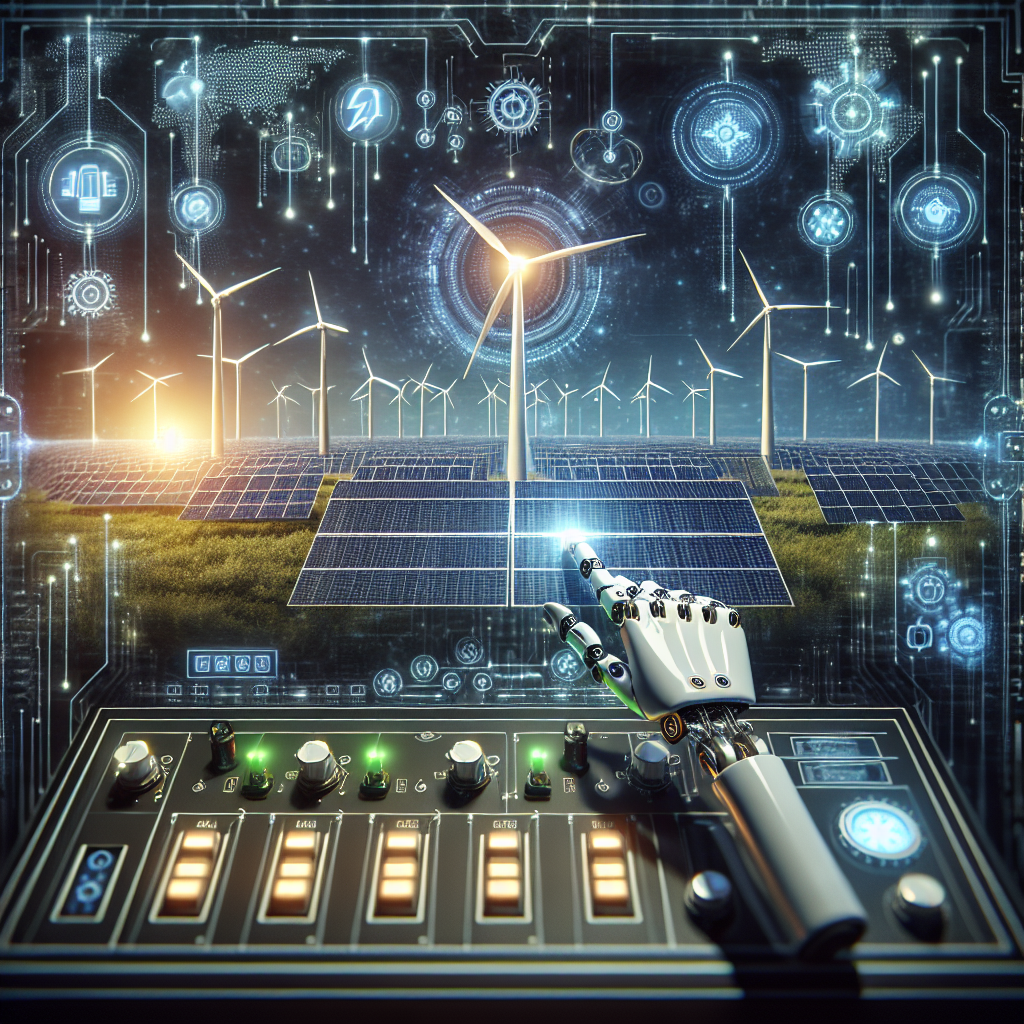The energy sector is undergoing a significant transformation with the rise of artificial intelligence (AI) automation. AI is revolutionizing the way energy is produced, distributed, and consumed, leading to increased efficiency, reduced costs, and a more sustainable future. In this article, we will explore the future of AI automation in the energy sector and its potential impact on the industry.
AI automation in the energy sector involves the use of machine learning algorithms and other AI technologies to automate various processes and tasks, such as energy generation, distribution, and consumption. These technologies enable energy companies to optimize their operations, improve reliability, and reduce costs.
One of the key areas where AI automation is making a significant impact is in energy generation. AI algorithms can analyze large amounts of data from sensors and other sources to optimize the performance of power plants and renewable energy sources. This allows energy companies to maximize the output of their facilities while minimizing downtime and maintenance costs.
AI automation is also being used to improve the efficiency of energy distribution systems. By analyzing data from smart meters, sensors, and other sources, AI algorithms can predict demand patterns, identify potential issues in the grid, and optimize the flow of electricity to meet demand. This results in a more reliable and resilient energy grid that can better handle fluctuations in supply and demand.
In addition to energy generation and distribution, AI automation is also being used to optimize energy consumption. Smart home devices, such as thermostats and appliances, can use AI algorithms to learn user preferences and adjust their settings accordingly to reduce energy usage. This not only saves consumers money on their energy bills but also helps to reduce overall energy consumption and carbon emissions.
The future of AI automation in the energy sector looks promising, with continued advancements in AI technologies and increased adoption by energy companies. As AI algorithms become more sophisticated and capable of handling larger amounts of data, the potential for further optimization and efficiency gains in the energy sector will only continue to grow.
FAQs:
Q: How is AI automation being used in renewable energy production?
A: AI automation is being used in renewable energy production to optimize the performance of solar panels, wind turbines, and other renewable energy sources. By analyzing data from sensors and other sources, AI algorithms can adjust the operation of these sources to maximize output and minimize downtime.
Q: How can AI automation help improve the reliability of the energy grid?
A: AI automation can help improve the reliability of the energy grid by analyzing data from sensors and other sources to predict potential issues before they occur. This allows energy companies to take proactive measures to prevent outages and other disruptions in the grid.
Q: What are some of the challenges facing the adoption of AI automation in the energy sector?
A: Some of the challenges facing the adoption of AI automation in the energy sector include data privacy concerns, regulatory hurdles, and the need for skilled personnel to implement and manage AI technologies. However, as these challenges are addressed, the potential benefits of AI automation in the energy sector will become increasingly apparent.
In conclusion, the future of AI automation in the energy sector looks promising, with the potential to revolutionize the way energy is produced, distributed, and consumed. By leveraging the power of AI technologies, energy companies can optimize their operations, reduce costs, and move towards a more sustainable future. As AI algorithms become more sophisticated and capable of handling larger amounts of data, the possibilities for further optimization and efficiency gains in the energy sector are endless.

